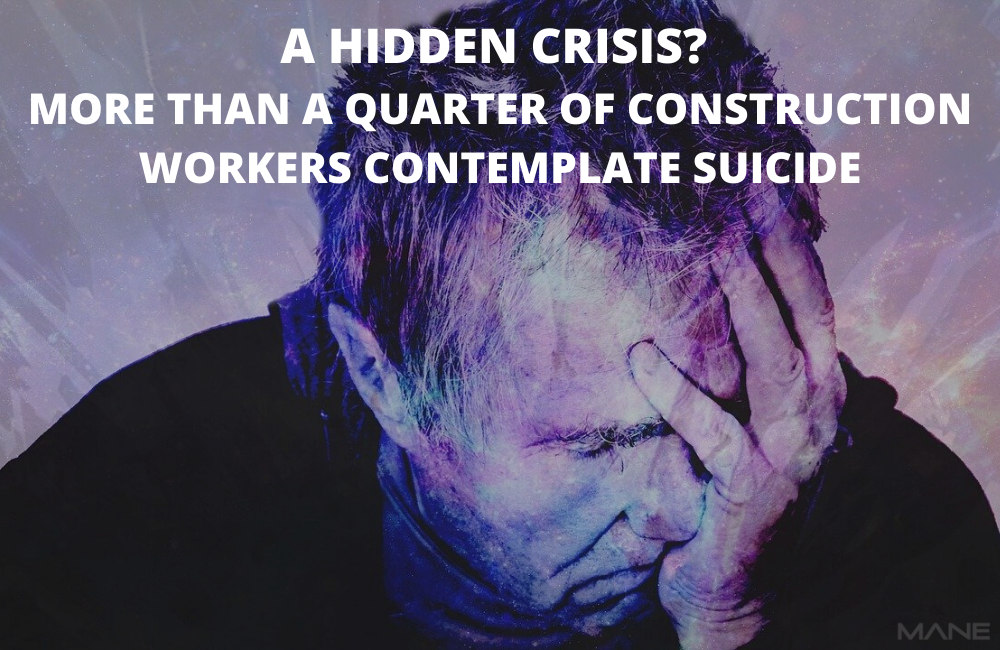A Hidden Crisis? More Than a Quarter of Construction Workers Contemplate Suicide
18 May, 202010 minsIt’s Mental Health Awareness Week, but is the industry doing all it can to prevent a p...

It’s Mental Health Awareness Week, but is the industry doing all it can to prevent a post covid-19 crisis?
Over a quarter (26%) of construction workers considered suicide in 2019, according to a report by The Chartered Institute of Building.
97% said they felt stressed at least once in 2019 – and this was before coronavirus. The most frequently cited stress factors were job insecurity, long hours, lack of time with their families, and lack of support at work. 56% said their organisation had no mental health policy.
CIOB president Professor Charles Egbu said the report, titled ‘Understanding mental health in the built environment’, revealed a “silent crisis” in the industry.
The report urges construction companies to focus on identifying risks, encouraging staff to discuss mental health openly, and providing them with specialist support services, as well as training and events to boost their awareness of mental health.
It also suggests larger businesses could think about offering support to other firms in their supply chain. “No one person can solve this on their own,” said Egbu.
Donna Murphy of Mane Contract Services, a leading recruiter into the construction and infrastructure industry commented. “Organisations need to work with their recruiters much more in this area. We are on the front line and can support employers in this area.”
With 30% of construction sites allegedly lacking even basic physical needs like toilets and hot water – which also affects mental health – the industry will need financial help from the government in order to follow this advice.
The report calls for an expansion of the Construction Skills Certification Scheme to include mental health support, and an update to the Health and Safety (First-Aid) Regulations 1981 to make mental, as well as physical, first aid a requirement at work.
It also asks for the mental health recommendations of the government’s 2017 Thriving at Work report to be taken on board.
Donna Murphy goes on to describe that “Mental health first aid training is vital, and we have established a system for supporting this, as well as offering mental health training. It has a measurable positive impact, but it needs to be just one element in a company-wide holistic approach to wellbeing. Often many of the people on site are contractors, but that does not diminish the significance of mental health responsibility. We also offer support on training for leaders, reasonable adjustments for those with mental as well as physical health issues, healthy job design, flexible working, and signposting clear pathways to further support.”


